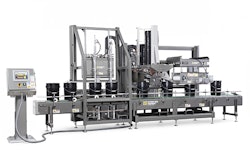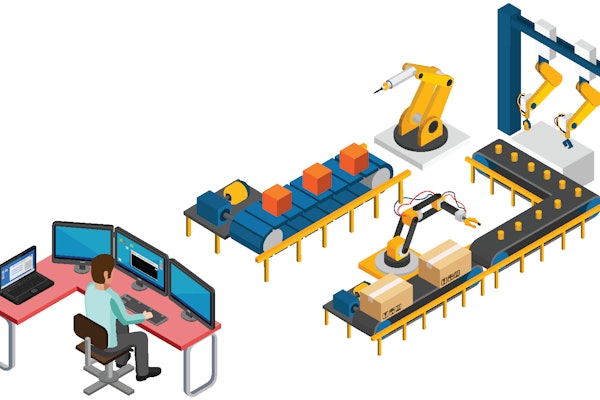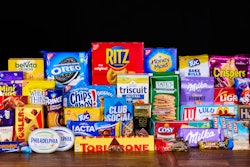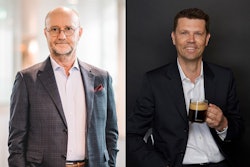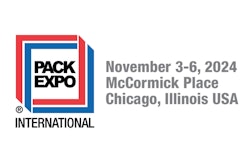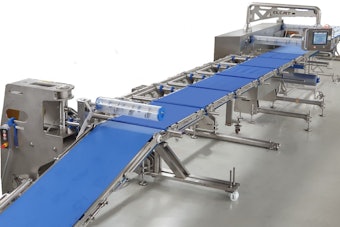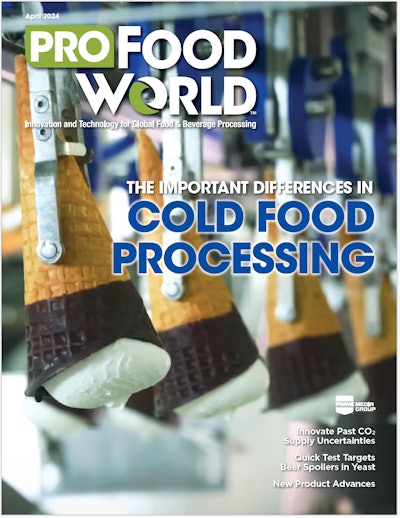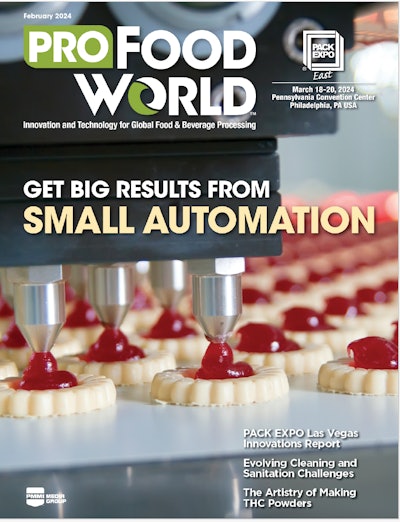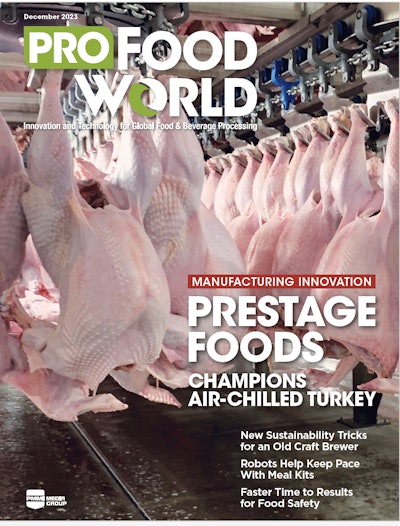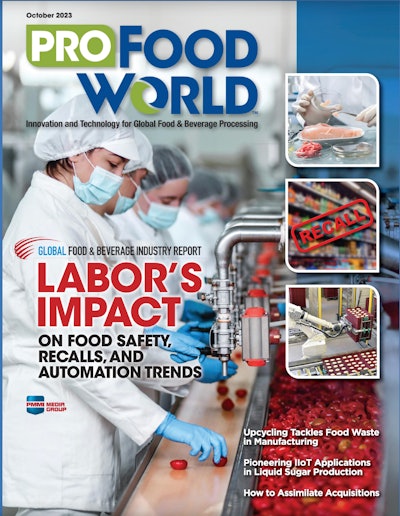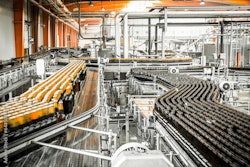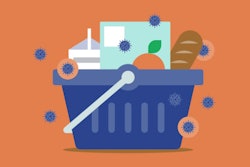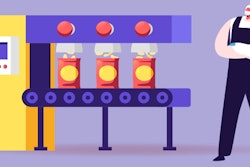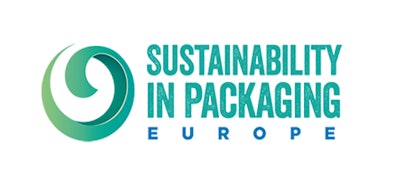
As part of the Sustainability in Packaging Europe conference - happening online this week - there was a panel discussion between a material and packaging producer, end user, retailer, and collection and recycling representative, and they spoke about plastic packaging sustainability following the onset of the pandemic. The panel was led by Hans van Bochove of Coca-Cola European Partners, who said, “There will need to be some form of cooperation and alignment in the packaging supply chain in order to help ourselves reduce packaging, reuse or refill it, collect, and ultimately recycle it back into our products.
Below is the edited version of the discussion between van Bochove; James Bull, Tesco; Joe Franses, Coca-Cola Enterprises; Gerald Rebitzer, Amcor; Carsten Larsen, Dow Chemical Company; and, Pauline Metivier, Veolia.
Hans van Bochove
How can we get packaging, and plastics in particular, to be more sustainable and to find ways of reducing, reusing, collecting, and recycling packaging back to new products? James, would you mind kicking us off with Tesco's views on this?
James Bull
This is a very challenging time operationally. I think we've seen the packaging management agenda sort of hit a few bumps in the road. So, first is supply and demand. Very much a few hotspots, especially if you think of hospitality closing and [for example] the need to get eggs in through the retail. To prevent food waste, all of a sudden you needed to pack eggs in a customer packaging solution that didn't exist to cope with the amount of demand and the amount of product we needed to shift.
So, there were some very obvious challenges like that, but behind the scenes there were also some other dynamics that were starting to change, such as shift away from loose product into things that were prepacked, because it felt like a safer place for consumers to engage with the product. And then, again, another broad challenge is we've got various bring-back schemes, where we get that material back to us to put into a loop and recycle into other pieces of packaging.
Hans van Bochove
That is a clear example of how the whole COVID-19 situation is actually impacting a place where literally the rubber hits the road, so where the consumer actually gets into the shop to buy products. So, in a sense, you already handled the packaging supply chain, so that is clear. That is where all things come together. Joe, from a producer's perspective, what are your experiences that build on to what James has told us?
Joe Franses
- I think from our perspective at Coca-Cola European Partners we've seen consumers continue to tell us, that environmental concerns have if anything as the pandemic has progressed, actually become a higher priority.
- What you see is a sharp reduction in impulse purchasing, you see a real shift away from out-of-home towards the home channel.
- And for us, that means a shift from single-serve products to some larger formats, to some multi packs.
- It also broadly means less glass, it means more large-PET, and it means more multi pack cans.
- It's led us to investing in recycled PET, not just in terms of how we put recycled PET back into bottles, but then also investments in the supply chain.
- At a fairly intricate level, the need to really follow not just making sure that what we're putting on to the market is recyclable but making sure that those packs are actually recycled.
And when you think about our products, we're in a very fortunate space when you think about a beverage, plastic bottle or a beverage can, all of that material is largely mono-material and it is fully recyclable. And if collected, can truly be recycled, and then can come back.
Hans van Bochove
Pauline, from Veolia's perspective, how are you experiencing COVID-19, your business, and your aspirations?
Pauline Metivier
We did see some changes in consumer behavior: The recycling rate has increased a bit during the lockdown, at least in the UK, but they tend to now reduce again when restriction lifts.
It's hard to focus whether there will be a persistent trend on this part or not, and I believe that what the industry should aim to achieve in the next few years, is to really manage to close the loop on packaging. So, we need more recyclable packaging on the shelves, with more circular design, mono-material packaging. We need more infrastructure to recycle the packaging, producing higher quality - really working with the packaging manufacturers and brand owners to achieve the right quality, to put the material back into packaging.
And finally, we also need more drivers to continue to incentivize the customer to do the right thing and put their packaging in the recycling bin with schemes like deposit return, for example. We cannot entirely rely on the consumer changes. It needs to be driven both by industry partnership and also by the right policies.
Hans van Bochove
Carsten, as a representative of Dow, and being responsible for finding, if you'll allow me to simplify it like this, projects for Dow that actually put value to waste - in this case, plastics waste - how is COVID-19 impacting your plans?
Carsten Larsen
COVID has really shown us as polyethylene producers that plastic is a very valuable material. It's an effective, valuable packaging material, and the need for plastic, especially for health, hygiene, medical applications, and food safety applications, I don't think anyone will disagree that it has a value there. But the flip side on this is that we do have a waste problem, and if anything, that has gotten stronger due to COVID.
Plastic is way too valuable to be lost to waste, and we need to find a way of making plastic part of the circular economy. And to much of what Pauline said before, none of our companies can do this on our own. We need to collaborate; we need the partnerships.
We need to make plastic packaging recyclable. That's our first thing, that multi-layer structures, probably needs to go to some mono-layer materials so they become recyclable. We need to incorporate recycled content in our packages, and we also need to recycle plastic. Whether it's mechanical recycling or more advance recycling forms, we need to do that. Overall, I think all of us in the panel, we have the challenge ahead of us of making scalable solutions. We have to make economic viable solutions, and we also have to make sustainable solution, because we can't have a one-off.
Hans van Bochove
Gerald, as a representative for Amcor and being its sustainability director, the same question for you: How is COVID-19 impacting your business and your plans?
Gerald Rebitzer
I think we’ve learned that we can do things in collaboration much differently, and it actually works quite well. I would say in terms of Amcor or the packaging industry, there are ups and downs. But overall, I think we are actually in an industry that's pretty lucky. We see what we make here actually matters. We make food, pharmaceuticals packaging, others make the products, the materials for that, and it's a full value chain to deliver on that.
So, I think COVID has somehow taught us a bit of what matters. The focus on sustainability has even accelerated. There might be an even increased need for packaging in some areas, if we talk about e-commerce or hygiene. And then it's even more important that we design that packaging so it can be recycled or reused. We make sure it makes sense from an overall life-cycle perspective, so we find the best solutions for the packaged products system and not just jump to simple systems. All of that I think has really reinforced sustainability.
We have about 1,000 people working on developing new packaging, and all of them are focusing to make sure that the packaging we make, we use aluminum, paper, and plastics. It's basically going towards mono-materials that can be and is actually recyclable, either in the paper, in the aluminum, or in the plastic stream.
Hans van Bochove
Joe, if you'll allow me to go back to you as a producer, in that specific context, you didn't talk about what you are envisioning to do from a targets perspective, and also why you're setting those. So, can you elaborate a little bit on that?
Joe Franses
There is a window to get this right, but that window is closing very, very rapidly, and I think that we also see continued consumer concern about single-use plastic bottles. That negative perception also mirrors local collection recycling rates. So, in markets where you see much more visibility of plastic waste and much lower collection rates, then the concern is much greater.
And that's exactly why, as a Coca-Cola system, we set two specific targets: One is around looking at how can we get to a place where for every single bottle or can we sell, 100% of our packaging can be collected, and to try to shift towards that within a five-year period. And then trying to get to a place where half of or even more than half of the plastic we use comes from recycled plastic, and we're somewhere about 30% now, we want to get to 50% by 2030.
In some markets our journey's not going to be a linear path, but in some markets, we are already at a place where every single plastic bottle that we put on to the marketplace is made from 100% recycled content. Such as in Sweden, and we've recently announced that we'll take Norway and the Netherlands in that direction.
There's no doubt that plastic packaging, if it's used correctly, in the right circularity, is a great material. The problem we've got is that the reality is not there in many of our markets, and so that's why we're placing the emphasis on this collection piece.
For us, in terms of beverages, it means really getting behind deposit return schemes for beverage packaging, taking the learnings from markets that do have those schemes and taking them to markets like England, Scotland, Spain, and France, that don't have deposit return schemes, because we think they're the best ways of getting to 100% collection of beverage packaging.
If you do that, and you can get that packaging back and then you can put it back into your bottles again, either through mechanical recycling, or you've got a fairly mature infrastructure, or through enhanced or chemical recycling where we'll probably need help from your Dow colleagues, but you talk about scaling up, that industry needs to be scaled up. If you can get to there, then plastic beverage bottles are truly circular and truly sustainable. My fear is that the window is so short, we've got a lot of way to run before we get there, and that's the biggest challenge to this whole topic.
For more information on the Sustainability in Packaging events, click here.



